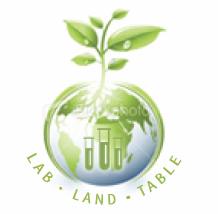Dr. Daniel P. Larson is President of Cayuga Community College, with campuses in Auburn and Fulton, N.Y.
For nearly six decades, Cayuga Community College has nourished the minds of our students. Within the next few months, we will provide greater access to fresh, nutritious produce for community members as well. The college, in
partnership with the Cayuga/Seneca Community Action Agency and funded entirely by the Walmart Foundation, will become home to a high-tunnel, passive greenhouse near the Thomas L. Steenburgh Nature Center on our Auburn campus. This project is part of the larger vision at the college that has identified sustainable agriculture and green sciences as a strategic area for development.
With assistance from community volunteers and our own AmeriCorps students, cold-hardy vegetables like spinach, kale, beets, carrots and varieties of lettuce will grow in the high tunnel and be harvested for area food pantries this fall and winter. The high tunnel will be a training site for project-based learning programs for interested faculty, students, staff and community members who want to learn about season-extension techniques, drip irrigation, organic farming principles and practices, and sustainable methods of food production.
This project dovetails with applied science projects underway at the college that examine natural resources and sustainable agriculture. For the past four years, microbiology students have been tracking the presence of two microscopic parasites — cryptosporidium and giardia — that can pose serious risks to human health when they find their way into water sources. These parasites, found in the feces of animals like white-tailed deer, can be resistant to chlorine and must be filtered from the water supply. Students map their findings to track the presence of these parasites. Through their work, they realize how their laboratory research can have real impact on the health and functioning of society.
On Nov. 1 and 2, the college will host our first international Sustainable Agriculture Symposium, bringing together researchers, farmers, educators, food providers, lawmakers and others to discuss developments in agro-ecology, bio-pesticides, bio-fertilizers and green technologies, and their effect on the environment. Conference participants will consider sustainable agricultural research from “laboratory to land to table” — the entire process of these developments from international and local perspectives.
The symposium will include workshops, poster sessions, networking receptions and keynotes addresses, including Dr. Sudhir U. Meshram, vice chancellor of North Maharashtra University in Jalgaon, India. We are inviting people interested in hosting symposium workshops to submit their proposals online at www.cayuga-cc.edu/susag2012. The symposium will address these four main theme areas:
- Promoting participatory research, co-inquiry and outreach with farmers to support sustainable agriculture innovations
- Examining advances in the development and use of agro-ecology, bio-pesticides, bio-fertilizers, green chemistry, molecular biology and related technologies that improve soil and crop productivity
- Developing connections between sustainable agriculture and the environment, including the impact on water quality and climate change
- Bringing sustainable agriculture to the marketplace and the table
For more information about submitting proposals to present at the symposium, please contact professor Christie Waters at [email protected]. To register for the symposium, please visit www.cayuga-cc.edu/susag2012.
This collaborative venture is made possible through the support of these co-sponsors: Cayuga Community College Foundation, Wells College, Westminster Kingsway College of London, Cornell Cooperative Extension of Cayuga County and the Institute for the Application of Geospatial Technology. The college is pleased to be part of this innovative symposium that brings together stakeholders to discuss unique ways in which to address hunger relief, to develop sustainable agricultural processes, and to share best practices across the globe. We invite you to take a seat at the table and to learn more about the journey your food takes to arrive there.


